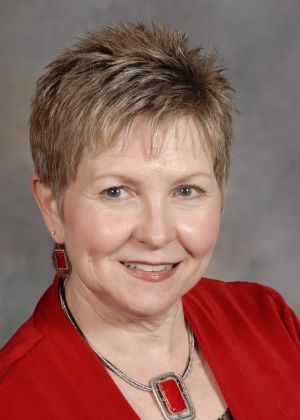By Jeff Brumley
There may just be an ancient solution to the modern church’s problems of decreasing attendance and rising religious illiteracy in a post-modern culture turned off by denominational brand names, some leading Baptist scholars and educators say.
The answer? Catechisms — the ancient teaching tool used to drill Christian identity and doctrines into the minds of children and adults alike.
“I have been encouraging a number of people to write them,” said church and Baptist historian Bill Leonard of the School of Divinity at Wake Forest University. “I think we need it.”
 One of those Leonard has encouraged is Nathan Taylor, a doctoral student and associate pastor for Christian formation and children at Central Baptist Church in Richmond, Va.
One of those Leonard has encouraged is Nathan Taylor, a doctoral student and associate pastor for Christian formation and children at Central Baptist Church in Richmond, Va.
Like many in ministry today, Taylor struggles with how to get sporadic and regular attenders and newcomers without spiritual schooling onto the same page. He isn’t convinced a formal catechism is the answer — but he hasn’t ruled it out, either.
“We need to invent some new processes . . . where they are learning some of the basics of what it means to be not only a Christian but one in the Baptist tradition,” Taylor said.
‘An old tradition’
Baptists skeptical of catechisms would be wrong to think of them as the sole propriety of Catholics, the Orthodox and Episcopalians, Leonard said. In fact, Baptists interested in returning to the roots of their faith especially should consider them.
“It’s an old tradition in Baptist life,” he said.
And it wasn’t just moderate or liberal Baptists who favored them, said Thomas Nettles, professor of historical theology at Southern Baptist Theological Seminary and author of the 2013 book Teaching Truth, Training Hearts: The Study of Catechisms in Baptist Life.
Catechisms, then and now, often use a question-and-answer format in which students must memorize and often recite core teachings before a class, minister, teacher or parent.
Nettles said he has uncovered a number of the texts that show catechisms were popular among British and American Baptists of nearly every variety since the earliest days of the movement, Nettles said.
 “We’re talking first- and second-generation Baptists,” Nettles said.
“We’re talking first- and second-generation Baptists,” Nettles said.
Keach’s Catechism, also known as the Baptist Catechism, dates to 1693, and there is evidence Baptists were borrowing the theological training texts of other Christian groups before that.
“It was a common method of education,” Nettles said. “They didn’t have Sunday school or Sunday school literature” to rely on.
Denominations rise, catechism falls
It wasn’t until the advent of the Sunday school tradition and denominational publishing houses in the 19th and early 20th centuries that the use of catechisms began to wane among Baptists and other Protestants who traditionally used them, Nettles added.
Those developments plus the advent of Bible studies pushed Christians to use uniform curricula and other literature instead, Nettles said.
Catechisms, which were sometimes produced by and for individual congregations, also declined as denominations ascended.
“Baptists were … tryng to establish more denominational consciousness and coherence.”
Also during this time, spiritual experience came to be seen as more important in religious formation than propositional truth and simply memorizing facts about doctrine, he said.
Teaching by example
That’s an especially important, and still very relevant, issue when considering the use of catechisms with children, said Janice Haywood, a childhood ministry specialist and adjunct professor at Campbell University Divinity School.
 Young people learn much more about faith through the example of others than they do from exclusively academic approaches, she said.
Young people learn much more about faith through the example of others than they do from exclusively academic approaches, she said.
“The relational piece is very important so you don’t just have people who have knowledge,” Haywood said.
It’s the same principle behind the children’s church some congregations use to prepare young people to worship with adults on Sunday mornings. It works best when coupled with participation in actual services.
“You can teach them in a class about worship, but they don’t really learn to worship until they are with people who are worshiping,” Haywood said.
Catechism needed for conversion
But there is one area where catechisms would be useful — in preparing youth for baptism, she said.
Children who attend Sunday school irregularly usually are not prepared for the process theologically. At best, they are ill-prepared to make a decision for Christ, she said.
“Many churches do nothing with the children but ask yes-and-no questions, but it’s so much more than that,” she said. “It’s important they go through some type of catechism.”
Portions of the Cooperative Baptist Fellowship’s Becoming Like Christ: Helping Children Follow Jesus, which Haywood helped edit, plays that role for the churches that use it, she said.
“Sunday school did that for many years when children were in regular attendance,” she said. “Sunday school was pretty much catechism.”
She added that adults have largely lost that opportunity, too, with nothing fully replacing the Training Union programs many Baptist churches once used.
The loss of such programs is acutely felt nowadays as many coming to Baptist churches are doing so without any interest in denominational identity or even in a coherent Christian theology, Leonard said.
The decline of denominationalism is also contributing to the loss of basic, uniform theological instruction, he said.
“Denominations used to carry that weight,” he said. “They used to have programs that offered studies in scripture, history, ethics and doctrine.”
‘There has to be a way’
That creates challenges, too, for congregations welcoming new members, Taylor said.
Some churches offer new member courses that fill that need; others do not and instead try to be intentional in annual programming to identity and doctrinal issues.
“It would be amazing in Baptist life if we would work on shared values … and to have a common set of theological principles that are shared across CBF life,” Taylor said.
But because one of those principles is congregational autonomy, there’s no way to guarantee that, he added. Yet, “there has to be a way to get people through that process in some way.”
